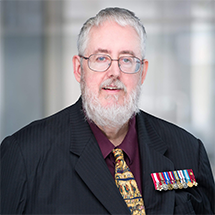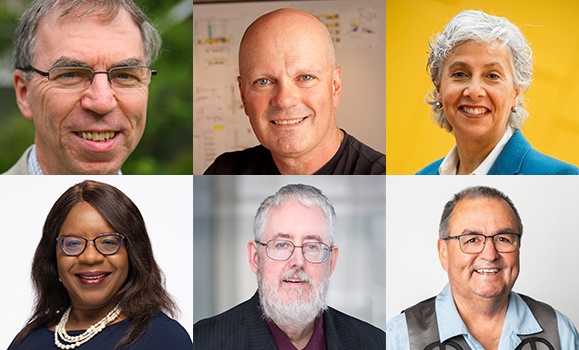Science, architecture, economic development, medicine, technology — each of these fields has become richer due to the contributions of the six individuals being presented with honorary degrees at this year's Spring Convocation ceremonies.Â
Through the awarding of honorary degrees, the university's highest honour, ąúĂń˛ĘƱ recognizes individuals who've demonstrated inspirational leadership in, or in service to, society, outstanding contribution to a field or discipline, and/or outstanding contributions to the university.
Their accomplishments and achievements are meant to inspire graduates and reflect the character and values of the university.
Honorary degree presentations will take place at six of the 19 Convocation ceremonies at ąúĂń˛ĘƱ this spring. Proceedings begin on Tuesday, May 21 and run through Friday May 31.Â
For more information, visit the Convocation website.
Dr. Austin Mardon
Author, Explorer, Advocate
Friday, May 31 (12:30 p.m. ceremony — Faculty of Science)

Dr. Austin Mardon is a polymathic explorer whose commitment to the fields of astronomy, geography, political history, theology, and medicine, and his mental health activism, have had far-reaching impacts. Born in Edmonton, Alberta, and growing up in Lethbridge, Dr. Mardon completed undergraduate studies in geography at University of Lethbridge and soon headed south — 170 miles from the South Pole as part of an Antarctic meteorite expedition for NASA and the National Science Foundation. Medical complications from environmental exposure on the trip earned him an Antarctic Service Medal but curtailed his aspirations of heading to space.Â
Dr. Mardon’s earthly ambitions were undeterred, however. He went on to earn master’s degrees in education and science, and his PhD in geography from the University of Greenwich in Australia. In the mid-1980s he started the Antarctic Institute of Canada, a non-profit promoting research and exploration, of which he is still the director. He’s authored upwards of 500 articles and books. After his 1992 schizophrenia diagnosis, Dr. Mardon became an advocate for people experiencing mental illness, writing numerous books on the subject and receiving the Canadian Medical Association Medal of Honour.
A Member of the Order of Canada, the Royal Society of Canada and the Royal Geographical Society of Canada, he currently holds adjunct professorships at the University of Lethbridge and in the University of Alberta Department of Psychiatry — the first time someone with schizophrenia has been appointed to such a position. He lives in Edmonton with his wife and frequent collaborator, Dr. Catherine Mardon.Â

